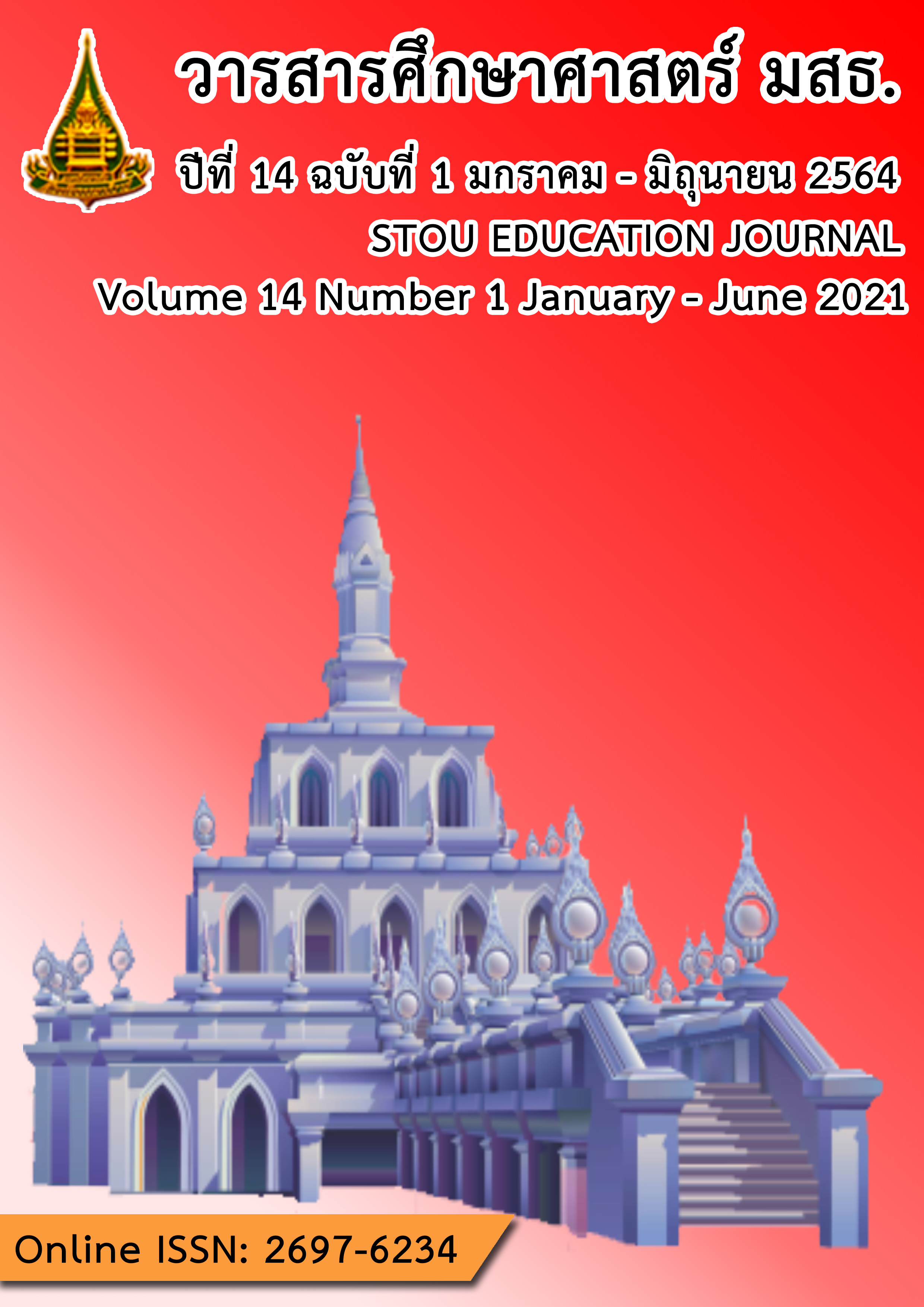A Survey of Desirable Characteristics of University of Phayao Students According to the Instructors’ Needs.
Main Article Content
Abstract
The purposes of this research were 1) to study the needs of instructors on the desired characteristics of University of Phayao students, and 2) to compare the needs of instructors on the desired characteristics of University of Phayao students in each discipline. The sample groups were 83 University of Phayao instructors from 3 different disciplines: Medical Sciences, Science and Technology, and Humanities and Social Sciences. Brainstorming is a major data collection technique. The research instrument was a brainstorming form regarding the desirable characteristics of University of Phayao students. The data were analyzed by content analysis. The results of the research revealed that 1) the instructors from all 3 disciplines agreed that students need to acquire soft skills as the desired characteristics the most followed by hard skills and determination respectively, and 2) the instructors from all 3 disciplines shared the needs in the first two highest items which are soft skills in the first place followed by hard skills as the second place. Moreover, they also ranked innovation skills as the last desired characteristic.
Article Details
References
กระทรวงศึกษาธิการ. (2563, ตุลาคม 12). ประกาศกระทรวงศึกษาธิการ เรื่อง กรอบมาตรฐานคุณวุฒิระดับอุดมศึกษาแห่งชาติ พ.ศ.2552. สืบค้นจาก http://www.mua.go.th/users/tqf-hed/news/FilesNews/
FilesNews2/news2.pdf
ชนิกานต์ ดุลนกิจ. (2556). ผลของการใช้หนังสือการ์ตูนเรื่องโดราเอมอนร่วมกับการสะท้อนคิดเพื่อสร้างความตระหนักเรื่องความมุ่งมั่นในการทำงานของนักเรียนมัธยมศึกษาปีที่ 6 (วิทยานิพนธ์ปริญญามหาบัณฑิต ไม่ได้ตีพิมพ์). จุฬาลงกรณ์มหาวิทยาลัย, กรุงเทพมหานคร.
พละกริท คอนซัลแทนท์. (2563, ตุลาคม 1). ทำไมต้อง Soft Skills. สืบค้นจาก https://www.palagrit.com/what-is-soft-skills
ทิศนา แขมมณี. (2546). การพัฒนาคุณธรรม จริยธรรม และค่านิยม จากทฤษฎีสู่การปฏิบัติ. กรุงเทพมหานคร: เสริมสิน พรีเพรส ซิสเท็ม.
ประภาพร จันทรัศมี. (2559). กลยุทธ์บริหารโรงเรียนเพื่อเสริมสร้างความเข้มแข็งทางคุณธรรมจริยธรรมของนักเรียนประถมศึกษา (วิทยานิพนธ์ปริญญาดุษฎีบัณฑิต ไม่ได้ตีพิมพ์). จุฬาลงกรณ์มหาวิทยาลัย, กรุงเทพมหานคร.
เมธินี เทียบรัตน์. (2562). นวัตกรรมเครื่องมือวัดสมรรถนะทางนวัตกรรมของบัณฑิตวิศวกรรม (วิทยานิพนธ์ปริญญาดุษฎีบัณฑิต ไม่ได้ตีพิมพ์). จุฬาลงกรณ์มหาวิทยาลัย, กรุงเทพมหานคร.
มนตรี อินตา. (2562). SOFT SKILLS: ทักษะที่จําเป็นสู่ความเป็นมืออาชีพของครูยุคใหม่. วารสารวิชาการศึกษาศาสตร์, 20(1), 153-167.
มหาวิทยาลัยพะเยา. (2560). โครงการประชุมสัมมนาเรื่องแนวทางการพัฒนานิสิตมหาวิทยาลัยพะเยา. ในวันที่ 9 พฤศจิกายน 2560.
ราชบัณฑิตยสถาน. (2563, ตุลาคม 8). จริยธรรม. สืบค้นจาก https://dictionary.orst.go.th/
วิมลฉัตร หอมเนียม, จุฑารัตน์ แก้วกลัด, นภัสรพี มานพ, นิราวรรณ ลักขณานุรักษ์, เทวดล อ่อน สัมฤทธิ์. (2561). ผลิตบัณฑิต สังคมศาสตร์ และ มนุษยศาสตร์ ไป ทำไม?. Thammasat University Journal, 37(2), 119-143.
ศศิธร ศักดิ์เทวินทร์. (2561). เข้าใจ จึง ได้ ใจ: เด็ก ไทย ยุค 4.0. วารสารวิชาการ หอสมุดแห่งชาติ, 6(1), 28-37.
สำนักงานคณะกรรมการการอุดมศึกษา. (2563, กันยายน 16). กรอบมาตรฐานคุณวุฒิ ระดับอุดมศึกษาแห่งชาติ พ.ศ. 2552. สืบค้นจาก http://www.mua.go.th/users/tqf-hed/news/FilesNews/FilesNews3/News328072552.pdf
สำนักงานพัฒนาวิทยาศาสตร์และเทคโนโลยีแห่งชาติ (สวทช.). (2563, กันยายน 10). ความรู้ที่ชัดแจ้ง และความรู้ ซ่อนเร้น. สืบค้นจาก https://www.nstda.or.th/th/nstda-knowledge/144-km-knowledge/3327-explicit-tacit-knowledge
สำนักสร้างและจัดการความรู้ กรมอนามัย. (2558). คู่มือการถอดบทเรียน สู่การจัดทำชุดความรู้ (Tacit knowledge to explicit knowledge: T2E). กรุงเทพมหานคร: สำนักงานกิจการโรงพิมพ์องค์การสงเคราะห์ทหารผ่านศึก.
สุพรรณิการ์ ชนะนิล, วิภา ชัยสวัสดิ์, พันทิพา คนฉลาด และปิยะธิดา ชนะพันธ์. (2563). การสํารวจความรู้ความเข้าใจเกี่ยวกับทักษะ Soft Skills ด้านบุคลิกภาพและศิลปะการพูดของนิสิตครูในศตวรรษที่ 21. วารสารวิชาการ มหาวิทยาลัยราชภัฎบุรีรัมย์, 12(1), 19-36.
สุนิดา ศิริพากย์. (2553). การพัฒนารูปแบบกิจกรรมการเรียนรู้ภาษาอังกฤษตามทฤษฎีแรงจูงใจใฝ่สัมฤทธิ์ของแมคเคลแลนด์และการเสริมสร้างอัตมโนทัศน์ตามแนวคิดนีโอฮิวแมนนิส เพื่อพัฒนาผลสัมฤทธิ์ทางการเรียนวิชาภาษาอังกฤษให้กับนิสิตการศึกษานอกระบบ กลุ่มด้อยสัมฤทธิ์ที่เรียนด้วยวิธีเรียนทางไกล (วิทยานิพนธ์ปริญญาดุษฎีบัณฑิต ไม่ได้ตีพิมพ์). จุฬาลงกรณ์มหาวิทยาลัย, กรุงเทพมหานคร.
อาภาภรณ์ นาคประเสริฐ. (2563, ตุลาคม 1). Soft Skills. สืบค้นจาก http://cfbt.or.th/cc/index.php/article/314-mar335
Adeyemo, S.A. (2009). Understanding and acquisition of entrepreneurial skills: A pedagogical re-orientation for classroom teacher in science education. Journal of Turkish Science Education, 6(3), 57-65.
Bora, B. (2015). The essence of soft skills. International Journal of Innovative Research and Practices, 3(12), 7-22.
De Bono, E. (1982). Six thinking hats. USA: Penguin book.
Dewiyani, M.J. (2015). Improving students soft skills using thinking process profile based on personality types. International Journal of Evaluation and Research in Education, 4(3), 118-129.
Donlaya, C. (2563, ตุลาคม 1). Hard Skill คืออะไร มีทักษะจำเป็นอะไรบ้างที่มนุษย์เงินเดือนควรมีติดตัวถ้าอยากอยู่รอด. สืบค้นจาก https://www.moneywecan.com/hard-skills/
European Commission. (2020, September 10). Analytical highlight focus of entrepreneurial skills. Retrieved from https://skillspanorama.cedefop.europa.eu/sites/default/files/EUSP_AH_Entrepreneurial_0.pdf
Guilford, J. P. (1967). The nature of human intelligence. New York: McGraw-Hall Book Company.
Kindness, D. (2020, September 12). Hard Skills. Retrieved from https://www.investopedia.com/terms/h/hard-skills.asp#:~:text=Hard%20skills%20are%20learned%20abilities,and%20subsequently%20improve%20employee%20satisfaction
Kohlberg, L. (1979). Development of moral character and moral ideology. In M.L. Hoffman & L.W. Hoffman (Eds.). Review of Child Development Research, Vol I. Hartford: Connecticut Printers.
McKeever, V. (2020, September 15). These are the most in-demand job skills in 2020, according to LinkedIn. Retrieved from https://www.cnbc.com/2020/01/17/blockchain-is-the-most-in-demand-job-skill-in-2020-says-linkedin.html
Osborn, A. F. (1963). Creative imagination (3rd ed.). New York: Charles Scribner’s Sons.
Robles, M. M. (2012). Executive perceptions of the top 10 soft skills needed in today’s workplace. Business Communication Quarterly, 75(4), 453-465.
Surbhi, S. (2020, September 18). Difference between explicit knowledge and tacit knowledge. Retrieved from https://keydifferences.com/difference-between-explicit-knowledge-and-tacit-knowledge.html
Wehmeyer, M.L. & Field, S.L. (2007). Self-determination: Instructional and assessment strategies. California: Corwin Press.
Zhang, Y., Cole, S., Hirt, E., & Bilgihan, A. (2017). Self-determination travel facilitation with mental construal priming. Tourism Management, 61, 472-483.


